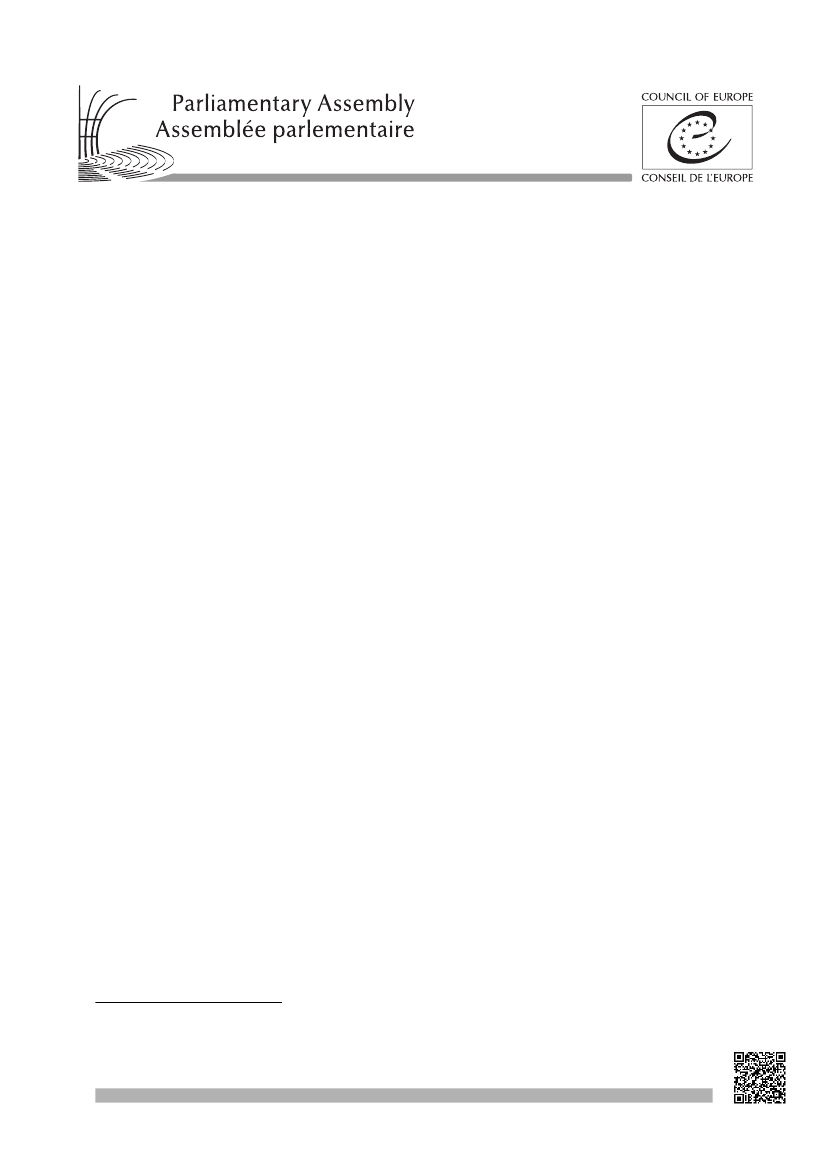
Kulturudvalget 2021-22
https://pace.coe.int
Resolution 2420 (2022)
1
Provisional version
Football governance: business and values
Parliamentary Assembly
1.
The Parliamentary Assembly underlines the important role played by sport in general and football in
particular in conveying values that are essential for social cohesion and living together, and in promoting well-
being and social advancement. Football has changed in many ways and it is only natural that it should
continue to do so. It has become a major industry involving huge sums invested in infrastructure, broadcasting
rights, sponsorship, merchandising, equipment sales, gaming and sports betting, etc. Football’s economic
success, particularly that of European football, is to be welcomed. Business must not, however, take
precedence over values: football and sport should not be reduced to money-spinning entertainment, and
sports governance should continue to be rooted in promoting human rights. Upholding such standards must
always be the force driving the major umbrella organisations’ actions, starting with the sporting events they
stage.
2.
Countries wishing to host major sports events must be prepared to assume stringent obligations in
various fields and meet them effectively. For example, their development projects related to sports events
(construction or renewal of sporting, accommodation, communication and transport infrastructure, etc.) and
the planning of the corresponding investments must comply with the criteria of economic, social and
environmental sustainability. They must also ensure the safety of all sports equipment and the security of the
national and foreign audience attending the events, and of people leaving or moving within the areas where
they take place. Likewise, all bidders for major international sport events, such as FIFA (International
Federation of Association Football) and UEFA (Union of European Football Associations) competitions, must
commit in concrete terms to ensuring compliance with key human rights standards.
3.
The Assembly notes that collaboration between host countries, the relevant international sports
federations and human rights organisations can yield valuable results. This was undoubtedly the case in
Qatar. The Assembly commends the efforts of FIFA which played a role in getting the labour law reform
process under way in Qatar and the work of the International Labour Organisation (ILO), the international
trade union movement and non-governmental organisations operating in Qatar. The Assembly also
commends the Qatari authorities for making real advances in this field. The Assembly cannot, however,
express its full satisfaction, as the situation of workers in Qatar remains worrying and the number of tragic
accidents continues to run into the hundreds. The reforms need consolidating to ensure that all economic
operators in the country comply with the new rules, and efforts to solve the issue of unpaid wages and to
improve working conditions for all workers must continue.
4.
The Assembly cannot ignore the harsh working conditions experienced by workers in Qatar since the
country was chosen to host the 2022 FIFA World Cup, and the thousands of work-related injuries, including
fatal ones, during this period (although not all of these were related to World Cup construction sites).
Compliance with ILO’s core labour standards should be a prerequisite for being a credible candidate and not a
target to reach after being chosen to host the FIFA World Cup or any another major sporting event.
1.
Assembly debate
on 26 January 2022 (5th sitting) (see
Doc. 15430,
report of the Committee on Culture, Science,
Education and Media, rapporteur: Lord George Foulkes).
Text adopted by the Assembly
on 26 January 2022 (5th sitting).
See also
Recommendation 2221 (2022).
F - 67075 Strasbourg Cedex
|
Tel: +33 3 88 41 2000
|
pace.coe.int